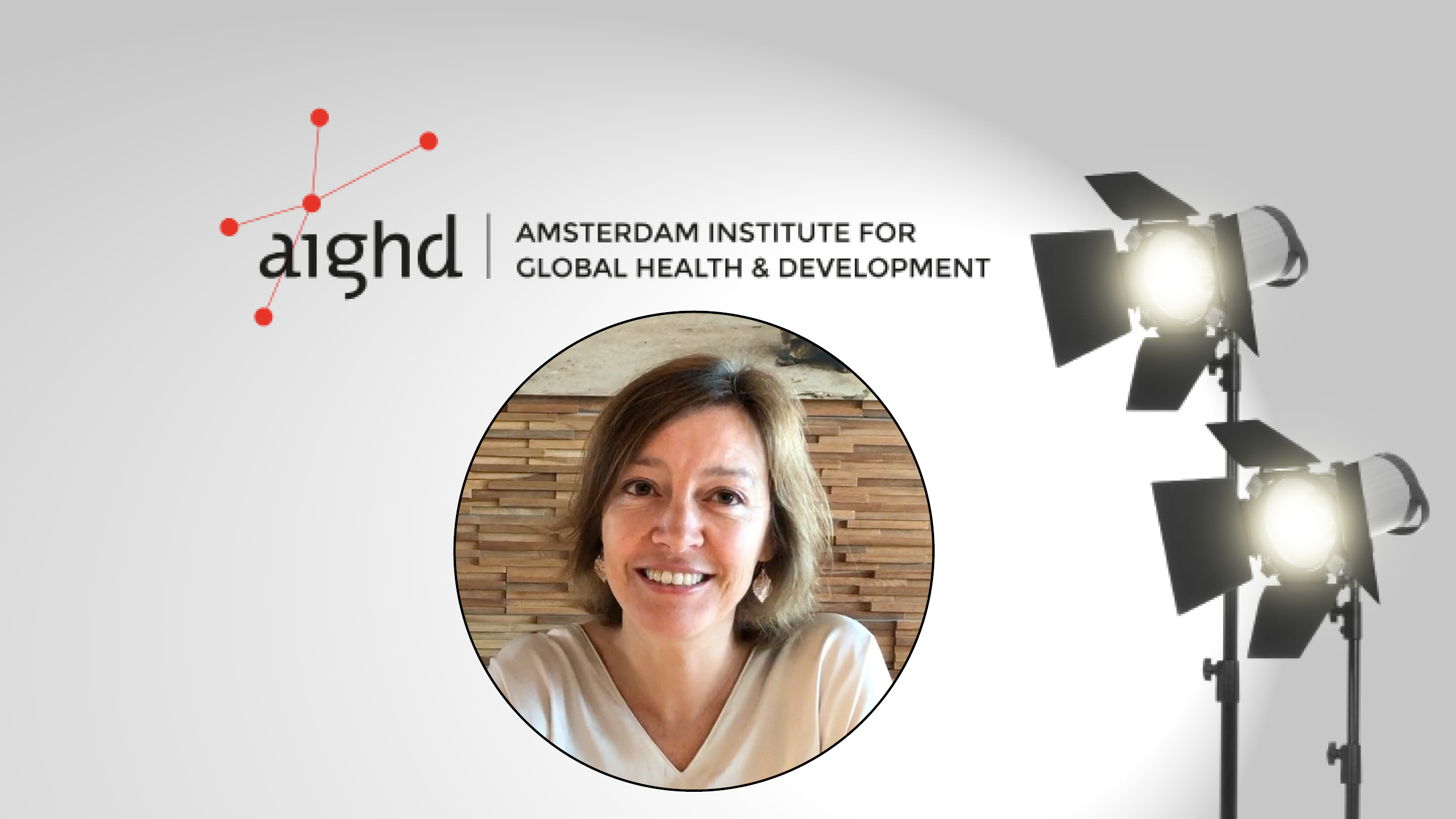
20 Nov AIGHD in Person: Wendy Janssens
A chance encounter inspired a career path for Associate Prof. Wendy Janssens.
While traveling through South America in the late 1990s, she and her husband stayed in a hut with a local family in the Andes. There, she met a young couple her age who told her how they dreamed of getting an education but were not able to because they were too poor. That encounter inspired Associate Prof. Wendy Janssens to pursue a career in social and economic development. She has since devoted her research career towards understanding people’s motivations and aspirations, as well as the impact of development programs that aim to support people in improving their lives.
She originally came to the Amsterdam Institute for International Development (AIID) in 2000 to pursue a PhD on female empowerment and social capital in India. She stayed affiliated with AIID throughout her career and in 2018, AIID merged with AIGHD, bringing Associate Prof. Janssens and her research colleagues officially into the AIGHD team. Wendy Janssens is now Associate Prof. at the Vrije Universiteit (VU) in Amsterdam and a member of the Academic Staff, AIGHD.
“The combination of being Associate Professor at the University and working at AIGHD is a perfect fit. At the University, I’m encouraged to be an expert in the field of economics while at AIGHD I’m encouraged to work in an interdisciplinary team, exploring topics outside of my core expertise,” Associate Prof. Janssens said.
At AIGHD, she has an opportunity to work closely with researchers from other fields. In one of her studies she collaborates with quantitative researchers from Oxford University and a qualitative team at Oxfam Novib in studying child marriages in Pakistan. The aim is to better understand how social norms affect childhood marriage and whether edutainment (educational entertainment), such as series and films, is most effective in changing norms and practices when targeted at women and girls or at men and boys. Childhood marriage is still prevalent in many places around the world and is linked to numerous, harmful consequences for women and girls, including school dropout, domestic violence, loss of power and decline in health. In addition to being of significant importance, it brings together the essence of AIGHD: research through an interdisciplinary mixed-methods approach.
“Because I work at the intersection of different fields, I can really explore how community interventions can help change social norms. In an earlier study conducted with Oxfam in Mozambique, I evaluated the impact of a female condom training program. That project was another master example of our interdisciplinary work because I worked alongside economists, public health professionals, anthropologists, and other researchers to better understand impacts and underlying mechanisms.”
“With each of us being from different fields, we often brainstorm around research questions and it’s fascinating to see how my colleagues’ points of view from their own field of expertise open up completely different avenues of thought. Almost all research questions can be examined from different angles and an interdisciplinary approach is a great way to deeply understand development challenges.”
In addition to the deeper exploration of research questions, Associate Prof. Janssens also says there’s a distinct advantage of having researchers that employ different research methodologies work together on the same project.
“In my current work with the African Population and Health Research Center on mobile technologies and maternal and child health in Kenya, for example, we use a range of research methodologies. The anthropologists in our team use qualitative research methods, the pediatricians measure actual food consumption and anthropometrics (anthropometric measurements are systematic measurements of the size, shape and composition of the human body), and we economists employ quantitative survey methods and behavioral games. This allows our study to examine impacts and processes from multiple perspectives.”
Going forward, Associate Prof. Janssens is interested in pursuing global mental health projects, which focus on mental well-being in an international context. In many countries around the world there is a lot of stigma surrounding mental health while access to mental health care is severely limited. Healthcare systems face the challenge of developing accessible, affordable and better support for those who suffer from mental health concerns.
“This is an exciting field, recently we have seen a growing interest in global mental health, both in the scientific community as well as in policy circles, and we look forward to contributing AIGHD’s multidisciplinary approach to this field of research. As a first step, together with Prof. Ria Reis we aim to create an interdisciplinary Global Mental Health hub at AIGHD, organizing brainstorm workshops and gathering like-minded researchers from our sister organizations in Amsterdam. Moreover, we have several ideas for new research programs and in the near future we will focus on transforming those ideas into concrete research plans and grant proposals. More to come soon!”
To learn more, visit Wendy Janssens’ profile.
